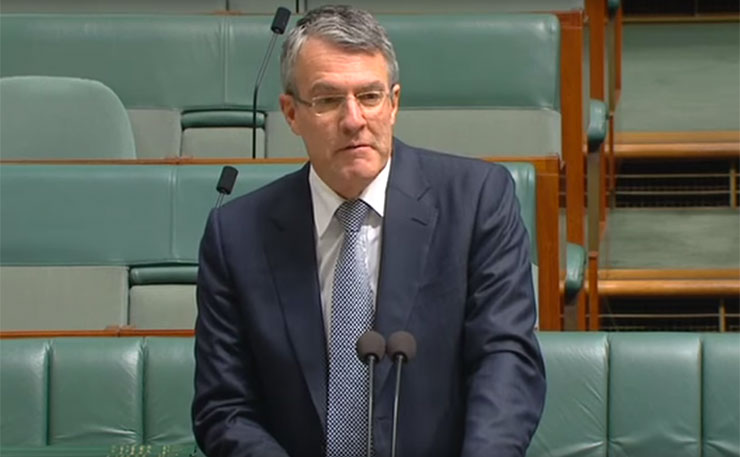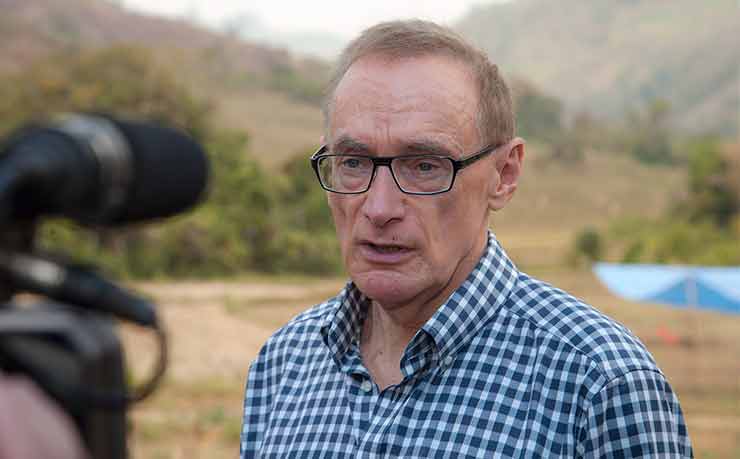It’s baby steps, but the recent decision by NSW Labor in support of Palestine represents progress, with more on the way predicts Michael Brull.
NSW Labour has committed as policy to recognising Palestine as a state. In a sense, this is a purely symbolic move. It puts virtually no pressure on Israel. It doesn’t really highlight any particular human rights violations in Palestine. It doesn’t commit Australia or the ALP to any particular measures. Some may dismiss the motion.
Yet that overlooks the dynamics that have been involved in the campaign to push the motion. It has meant substantial parts of the ALP organising to confront the Israel lobby, publicly campaigning against Israeli actions, and widespread activism on Palestine.
It has also meant media scrutiny on Israeli policy, and the bullying of the Israel lobby. Fairfax ran a story recently on what Bob Carr called “furious” lobbying by the Israeli embassy against the NSW motion. They also ran an account from Australian journalist John Lyon’s memoirs of the bullying of Bob Carr by Labor MPs Michael Danby and Mark Dreyfus.

Dreyfus and Danby reportedly visited the funder of the think-tank that employed Carr. Carr alleges that the purpose of the visit to the funder was that “he should use his position as financial supporter of the think-tank that employed me to press me to cease expressing my opinion about Israel.”
Dreyfus’s response? “The meeting to which Mr Carr refers was private.” Dreyfus doesn’t even deign to deny Carr’s account.
Meanwhile, the Guardian ran its own account from Lyon’s memoirs. Former weekend editor of the Australian Nick Cater invited the Israeli embassy to their offices to complain about Lyon’s critical reporting on Israel. It also reported on Lyon’s account of AIJAC’s intense lobbying of the ABC and the Australian.
According to Amanda Meade’s summary, “Colin Rubenstein had unprecedented access to the Australian, speaking regularly to editors and even suggesting articles the paper should run.”
The Australian also ran an excerpt from Lyon’s memoirs, and an op ed supporting recognising Palestine. They editorialised against recognition, but the paper is no longer the bastion of uncritical support for Israel that it once was. The Australian characterised Labor’s new position as an “historic” shift.
Whilst NSW’s motion is considered the most significant, the ALP has also backed recognising Palestine in the ACT, Tasmania and Queensland. The ALP in Western Australia is likely to follow.
In South Australia, the ALP government urged the federal government to recognise Palestine. It is generally expected that at their next conference, the Federal ALP will back recognition too.

Recognising Palestine as a state has some implications at the level of discourse. If Palestine is a state, then there is an occupation. If Palestine is a state, the reason Palestinians cannot exercise self-determination is because Israel is occupying the West Bank and Gaza, and won’t leave. If Palestine is a state, then Israel is illegitimately stealing land from that state with every settlement. If Palestine is a state, then the Palestinians have the right to oppose their oppression by Israel, and people around the world have good reason to stop Israel from occupying their country.
The problem for the Israel lobby is that it lobbies furiously on everything, and is repeatedly losing.
It intensely fought the ABC over appointing Sophie McNeill as Middle East correspondent, and lost. It lobbied against John Lyon’s reporting on Israel, and even managed to offend editor Chris Mitchell with its heavy-handedness. Bob Carr has received plenty of fair media coverage in his criticisms of Israeli government policy, such as an account of him opposing Israel’s “foul” occupation.
If groups like AIJAC can be defeated on this motion, they can be defeated on other issues too. The ALP has a terrible record of supporting Israeli occupation, war crimes, rejectionism and land theft. The leading figures of the ALP – Bill Shorten, Tanya Plibersek, Penny Wong – have generally distanced themselves from recognising Palestine.
But the problem is, it is hard to be a progressive and be an uncritical supporter of Israel. It is hard to explain away Israel’s open rejectionism, its regular massacres in Gaza, and its endless colonisation of Palestinian land.

Palestinians search through the rubble of their destroyed homes hit by Israeli strikes in the northern Gaza Strip, during the 2014 assault. (IMAGE: UN Photo/Shareef Sarhan, Flickr)
Change also makes sense in electoral terms. There are three electorates where Jews make up more than 5 per cent of the electorate, and two of them are safe Liberal seats. There are 10 electorates where Arabs make up more than 5 per cent of the electorate, and many of them are seats in Western Sydney.
These are considered important seats in most federal elections. If the ALP does shift, it will give it an edge which the Coalition – doing its best to institutionalise Hansonism – will struggle to match.
Last year, I wrote that change was coming to the ALP. It was obvious that the pressure for change was coming from the grassroots. An astounding amount of motions critical of Israel were pushed – somewhere between 28 and 39. They were thwarted by intense backroom manoeuvring, but that kind of success simply wasn’t sustainable.
The ALP’s servility on Israel has meant that Palestine has been left off the political agenda. The ALP’s shift means that Israel will become a question of political debate. The ALP position will create space for a mainstream centre-left critique of Israeli policies.
For now, the ALP is adopting the mild position of recognising Palestine. But there is no reason to think that its position will stop there. There is an opening to push the ALP from symbolism to more concrete policies that target the occupation, and Australian complicity.
The Conservative Prime Minister of the UK said in 2010 that “Gaza cannot and must not be allowed to remain a prison camp”. In five years, the ALP could adopt a position opposing the blockade on Gaza. It could adopt a position supporting the International Court of Justice’s ruling against the wall that Israel is constructing in the West Bank. Perhaps it could one day oppose military ties with Israel.
The ALP has changed. In my view, there’s more to come.
Donate To New Matilda
New Matilda is a small, independent media outlet. We survive through reader contributions, and never losing a lawsuit. If you got something from this article, giving something back helps us to continue speaking truth to power. Every little bit counts.





